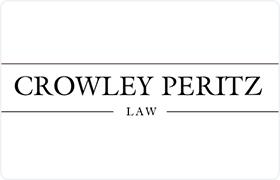 Dunn Loring White Collar Crime Lawyers, Virginia
Dunn Loring White Collar Crime Lawyers, Virginia
Sponsored Law Firm
-
 x
x

Click For More Info:
-
Crowley Peritz Law
10560 Main Street Suite 501 Fairfax, VA 22030» view mapCriminal Defense Law Over 20 Years Of Combined Experience
Our lawyers are experts in a variety of misdemeanor and felony crimes. We understand that choosing the best criminal lawyer for your case is not a simple task.
800-916-2741
Sponsored Lawyers
1-4 of 4 matches
Criminal, Accident & Injury, DUI-DWI, Felony, White Collar Crime
Recognized by Northern Virginia Magazine as a top Traffic & DWI Criminal Attorney, Robinson Law, PLLC is committed to delivering the best Criminal Defense in Northern Virginia. As a former prosecutor, Michael A. Robinson has a thorough understanding of how the “other side” operates. This is a key advantage in all criminal defense cases. Our firm believes each client deserves a Northern Virginia criminal attorney who is experienced, aggressive, responsive, and eager to build a winning strategy. Robinson Law, PLLC is a criminal defense and personal injury firm located in Fairfax, Virginia. The firm proudly serves all of Northern Virginia, including Fairfax, Loudoun, and Prince William Counties. Our criminal defense focus includes DUI/DWI defense, drug offenses, record expenditures, federal cases, juvenile defense, probation violations, theft, and traffic defense. Our personal injury areas of practice include car accidents, truck accidents, catastrophic injuries, dog bites, Amazon delivery accidents, rideshare accidents, and more. Available 24/7, call Robinson Law, PLLC at (703) 844-3746 to book a free consultation. Feel free to visit https://www.callrobinson.com/contact.
(more)


 Matthew Crowley Fairfax, VA
Matthew Crowley Fairfax, VA Practice AreasExpertise
Practice AreasExpertise

